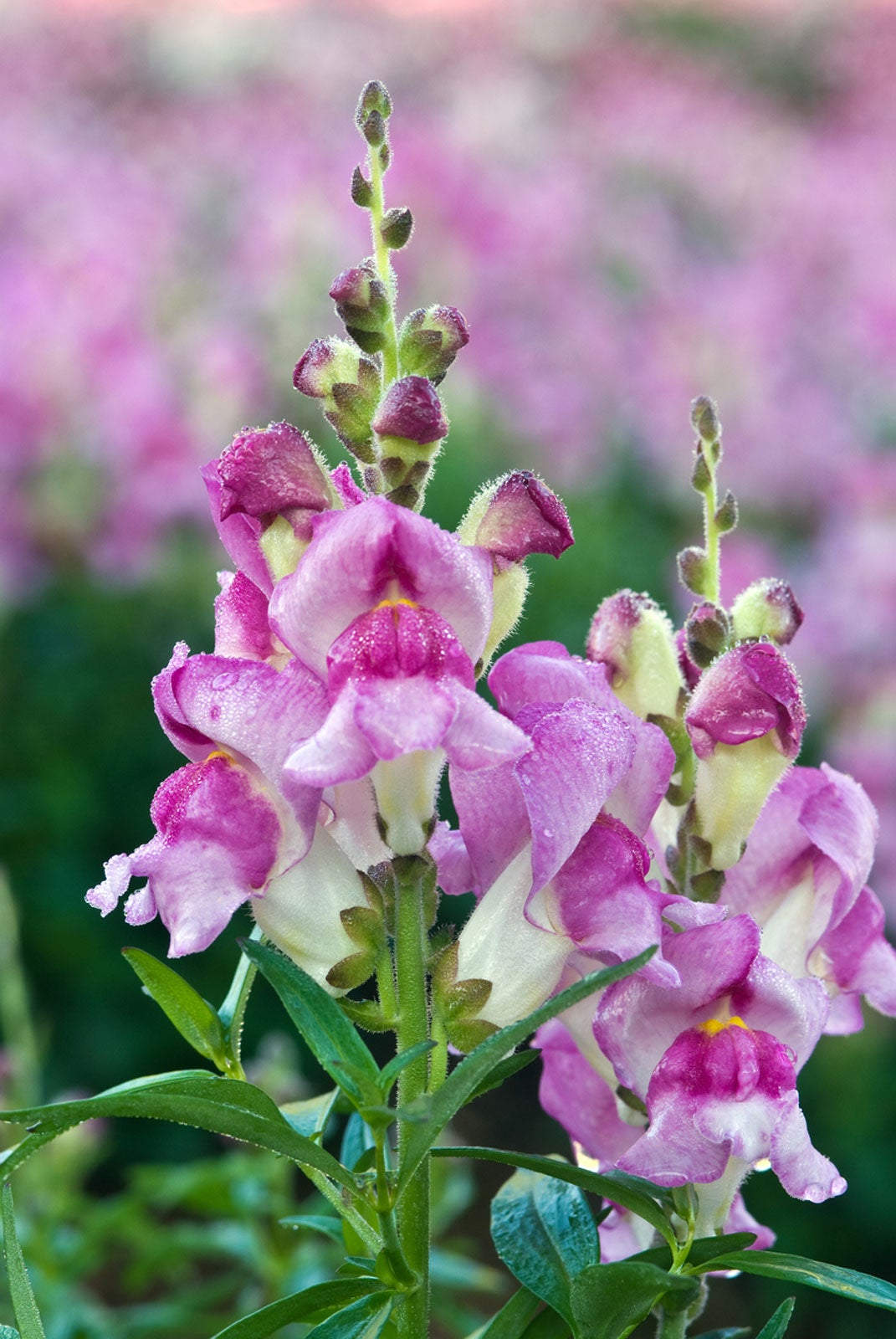Planting Snapdragons In The Garden: How To Grow Snapdragons


Growing snapdragon (Antirrhinum majus) in the flower bed provides cool season color and a mid-sized plant to balance tall background plants and shorter bedding plants in the front.
Learn how to grow snapdragon for early spring blooms. Numerous varieties of snapdragon exist with dwarf, intermediate and tall flowering stems that provide a range of colors to work with in the garden.
Snapdragons are available in most colors except blue and co-ordinate or contrast with other early spring bloomers. Height of the snapdragon may reach 3 feet (1 m.) or as short as 6 inches (15 cm.).
Planting snapdragons out can be among the first late winter gardening tasks. This fragrant specimen can handle frost, so start planting snapdragons early in the gardening season for most abundant bloom and performance.
How to Grow Snapdragons
After planting snapdragons in a full sun location with well-draining soil, snapdragon care should include a few well-placed clips to manipulate this plant into a bushy, filled-out specimen. Clip the top stem and any long side shoots to encourage more flowers and more attractive planting. Tall varieties of snapdragons may require staking to remain upright.
When blooms begin to fade due to summer's heat, clip the plant by one-third to one-half and expect more blooms when temperatures begin to cool in fall. Intermingle plantings of snapdragon with heat-loving Angelonia for a similarly formed plant in the summer flower bed.
Further care of snapdragons includes appropriate watering. When growing snapdragon, keep moist for the first few weeks. Once established, snapdragon care includes regular watering. Provide approximately an inch of water per week in times of no rainfall. Water near the crown of the plant and avoid overhead watering to keep your snapdragon healthy.
Sign up for the Gardening Know How newsletter today and receive a free copy of our e-book "How to Grow Delicious Tomatoes".
Once established, let the soil dry about an inch deep before watering. Snapdragon care includes the removal of spent blooms. Mulch is appropriate when growing snapdragon. Though mostly sold as an annual, proper care of snapdragons may encourage them to return next year, as they are actually a short-lived perennial plant.
Ideas for Planting Snapdragons
This Mediterranean native is deer resistant and grows well in sunny, outlying areas where these pests are prone to nibble. Planting snapdragons in the vegetable garden may offer some protection from browsing deer as well.
Take advantage of the showy blooms of growing snapdragons and bring indoors for arrangements. Many snapdragons are fragrant. Add snapdragons to those bare sunny areas of the landscape.
Work organic material into the bed prior to planting. Proper care of the snapdragon provides a wealth of early blooms in the garden.

Becca Badgett was a regular contributor to Gardening Know How for ten years. Co-author of the book How to Grow an EMERGENCY Garden, Becca specializes in succulent and cactus gardening.